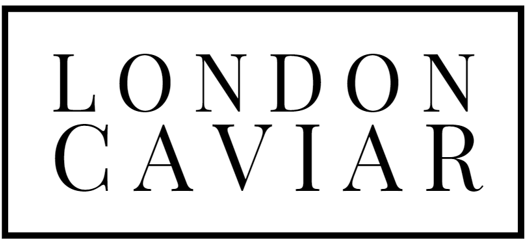Caviar’s reputation as a luxury food often overshadows its impressive nutritional profile. Beyond its delicate taste and opulent image, caviar delivers essential vitamins, minerals and healthy fats that support overall wellbeing. This article explores the science-backed health benefits of caviar and offers guidance on how to incorporate it into a balanced diet.
Nutrient Density and Vitamin Richness
A single 28 g serving of caviar contains around 75 calories, 7 g of protein, 5 g of fat and just 1 g of carbohydrate. That modest portion packs a surprising punch of micronutrients: it provides more than 236 % of the recommended daily intake of vitamin B12, an essential vitamin for energy production and nervous system health. Caviar also supplies selenium (34 % of the daily value), iron (19 %), sodium (18 %), as well as smaller amounts of calcium and vitamins A, D and E. Caviar is considered a nutritional powerhouse and offers a wide range of vitamins and minerals beyond its rich flavour.
Vitamin B12 deficiency is common in people who follow plant‑based diets or who have difficulty absorbing the nutrient. Regularly consuming caviar can help maintain healthy B12 levels, supporting energy and preventing anemia. The presence of fat‑soluble vitamins like A and E contributes to eye health, immune function and skin vitality. Calcium and magnesium support bone health, while iron aids oxygen transport in the blood.
Omega‑3 Fatty Acids for Heart and Brain
One of caviar’s most celebrated health benefits is its high concentration of omega‑3 fatty acids, particularly eicosapentaenoic acid (EPA) and docosahexaenoic acid (DHA). A 28 g serving provides more than 800 mg of EPA and 1,080 mg of DHA—levels that exceed the daily recommended intake of these essential fats. Omega‑3s reduce inflammation, lower triglycerides, support brain function and may decrease the risk of cardiovascular disease. Foods rich in omega‑3 like caviar can contribute to overall heart health and reduce the risk of blood clots.
DHA is particularly vital for brain development and cognitive function. Consuming adequate levels of DHA has been associated with improved memory, attention and mood. Pregnant and breastfeeding women may benefit from moderate caviar intake to support fetal brain development, though the sodium content means moderation is key.
Skin Health and Anti‑Ageing Benefits
Caviar’s nutrient profile also makes it a valuable ally for skin health. Omega‑3 fatty acids promote skin hydration and elasticity, while vitamins A and E protect against oxidative damage. Some studies suggest that EPA may help reduce signs of skin ageing by preserving collagen and preventing inflammation. Caviar’s omega‑3 and vitamin content can thus contribute to maintaining healthy skin.
In addition to oral consumption, some skincare products include caviar extract for its purported anti‑ageing properties. While topical benefits require further research, enjoying caviar in your diet offers a delicious way to nourish your skin from within.
Immune Support and Stress Reduction
Caviar contains significant amounts of zinc, magnesium and selenium, minerals that play crucial roles in immune function and stress management. Selenium acts as an antioxidant and supports thyroid health; zinc aids wound healing and immune cell production; magnesium helps regulate muscle and nerve function and may reduce stress and promote restful sleep. Together, these micronutrients help strengthen the body’s defences and maintain a resilient nervous system.
Moderation and Sodium Considerations
While caviar offers many benefits, its high sodium content means moderation is essential—especially for individuals with hypertension or kidney issues. A 28 g serving provides about 300 mg of sodium (approximately 13 % of the daily recommended limit). When incorporating caviar into your diet, balance it with fresh fruits, vegetables and low‑sodium foods. Choose malossol (lightly salted) varieties whenever possible and monitor portion sizes.
Caviar’s high fat content consists primarily of heart‑healthy unsaturated fats, but those calories can add up if eaten in large quantities. Enjoy caviar as part of a balanced meal rather than relying on it as the sole source of nutrition.
Ideas for Including Caviar in a Healthy Diet
-
Gourmet Breakfast: Stir a teaspoon of Baerii caviar into scrambled eggs or fold it into a creamy omelette. The combination of high‑quality protein and omega‑3s makes for a satisfying start to the day.
-
Elegant Appetisers: Top cucumber rounds or blini with a dollop of crème fraîche and a few pearls of Oscietra. The fresh, crunchy base offsets the richness of the roe, while providing a low‑calorie vehicle for the caviar.
-
Light Pasta Dishes: Toss al dente linguine with olive oil, garlic and a spoonful of Royal Imperial caviar just before serving. The heat gently warms the roe, releasing its buttery flavour without overcooking it.
-
Salad Enhancer: Add a small amount of Beluga caviar to salads featuring avocado, citrus and leafy greens. The omega‑3 fats complement the healthy fats and vitamins from the produce, creating a nutrient‑dense meal.
-
Caviar Tasting Flight: Host a tasting featuring different caviar types alongside sparkling water, fresh herbs and simple bases like boiled potatoes. This allows you to savour a variety of flavours without overconsuming sodium.
Conclusion
Caviar is more than an indulgent treat; it’s a nutrient‑dense food that delivers significant amounts of vitamin B12, omega‑3 fatty acids, vitamins A and E, selenium, zinc and iron. These nutrients support heart and brain health, promote glowing skin and strengthen the immune system. While caviar’s high sodium content calls for moderation, incorporating small servings into a balanced diet can offer meaningful health benefits. Whether you choose Beluga, Oscietra, Baerii, Royal Imperial or Golden Oscietra, savour each pearl knowing you’re indulging in a delicacy that nourishes as much as it delights.


